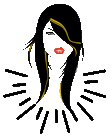Stop Hair Loss: How to Prevent Hair Thinning and Promote Hair Growth
Hair is a key element of our identities and self-expression. Experiencing hair loss or hair thinning can feel like you’re losing a piece of yourself.
While it’s common to lose between 50 and 100 hairs per day, losing more could point to a problem. If you’re wondering when to be worried and what you can do to stop hair thinning and prevent hair loss, then you’ve come to the right place!
Read on to learn what might be causing your hair loss or hair thinning and how to take matters into your own hands and stop it.

What’s the Difference Between Hair Loss and Hair Thinning?
Hair loss occurs when you start losing hair at the root or follicle. The entire strand will fall out and regrowth has to start from the beginning.
Hair thinning is the result of weak or damaged hair strands. While you aren’t losing hair, the strands themselves become thinner and can contribute to an overall look of less hair. Plus, thin strands are weaker which can lead to increased breakage.
What Causes Hair Thinning and Hair Loss?
There are both external environmental factors and internal genetic factors.
Environmental Causes of Hair Thinning and Hair Loss
Treatments like coloring, bleaching, perms, relaxers, and straightening strip hair of its natural protective oils, dries out the shaft, and can increase porosity. High porosity hair is porous, making it easy for products (like nourishing oils and conditioners) to pass through the shaft instead of absorbing into it.
High-tension hair styles like tight braids, cornrows, micro-braids, high ponytails and buns, and slick back styles pull on hair follicles, weakening them over time and leading to hair loss (such as traction alopecia).
Chronic stress can also contribute to hair thinning and hair loss. Increased production of the stress hormone cortisol can lead to an imbalance in the production of other hormones, which can in turn affect hair growth.
Nutrients and minerals play a key role in hair growth and hair health. Iron, zinc, folic acid, and antioxidants contribute to the health and function of hair follicles. If you’re not eating a healthy, nutrient-rich diet, that might contribute to your hair loss and hair thinning.
Genetic Causes of Hair Thinning and Hair Loss
Hormonal shifts can impact hair growth. Starting or stopping birth control, having a baby, experiencing menopause, or losing a lot of weight are all internal factors that can affect the function of your hair follicles.
Autoimmune disorders or immune system deficiencies can cause hair thinning or hair loss. Alopecia areata is an autoimmune disorder where the body’s immune system specifically attacks hair follicles, causing hair loss. People with autoimmune disorders or family members with autoimmune disorders can develop alopecia areata.
Skin disorders like seborrheic dermatitis and psoriasis can cause hair loss. Inflammation and irritation on the scalp can cause itchiness. Repeatedly scratching the scalp can damage hair follicles and contribute to hair loss and hair fall.
How to Stop Hair Thinning and Prevent Hair Loss
While medications and topical steroids have become a go-to solution for hair thinning and hair loss, they only treat the symptom without targeting the cause. Taking a natural approach to your hair health and hair growth puts the power in your hands.
Nutrients, minerals, herbs, and oils are all natural ingredients that cause healthy hair growth. Treat your scalp directly with nourishment and moisture.
Step One: Let Your Hair Down
A major contributor to hair thinning and hair loss is overworked hair. As fun as perms, weaves, and dyes might be, it’s important to give your hair a rest. Take a break from chemicals and tension and wear your hair down and natural.
Step Two: Gentle Wash and Deep Condition
Take a look at your current shampoos and conditioners. Look at the ingredients to see what kind of chemicals you’re putting in your hair. Parabens and sulfates are two well-known harmful chemicals in a lot of hair cleaning products. They strip the hair of its natural protective oils, leading to dry and itchy scalp.
Restore moisture and elasticity to your hair by deep conditioning. You can do this with a specific oil (like Bhringraj oil, Peppermint oil, Coconut oil, or a mix) or a pre-made deep conditioner. The goal is to get as pure and natural as possible and massage the nutrients into your scalp so your hair follicles can reap the most benefit.
Step Three: Post Wash Hair Care
Choose hair oils, greases, creams, powders and coco black naturals curling custard that are packed with natural ingredients that promote healthy hair strands and stimulate hair growth.
African Chebe Powder is a champion when it comes to stopping hair thinning. Coat the hair with a unique mix of tree sap, stones, seeds, and herbs to improve the shine and strength of the hair shaft. To visit thinning hair women and complete treatment, visit our website now.
Black Seed Powder contains thymoquinone, a natural chemical that contains antioxidants and anti-inflammatory properties which protects hair follicles.
Moringa Powder is biotin-rich and contains Vitamin A. When applied to the scalp, it’s great for fighting alopecia and promotes healthy cell production and hair growth.
Black Castor Oil increases blood flow to the scalp, which activates hair follicles and stimulates growth. As a high-quality moisturizer, black castor oil thickens hair and prevents breakage.
Stop Hair Loss and Prevent Hair Thinning with CHEBE PRODUCTS
Listed above are just 4 highly-beneficial natural ingredients for hair health and hair growth. CHEBE PRODUCTS are infused with 20 oils, nutrients, and minerals to maximize your hair benefits and stop hair damage and loss.
If you’ve been struggling with hair thinning and hair loss, you’ve come to the right place. We’ve created products that have lasting effects. Don’t treat the symptoms, get to the root (pun intended!) and watch your hair strengthen, shine, and grow.
